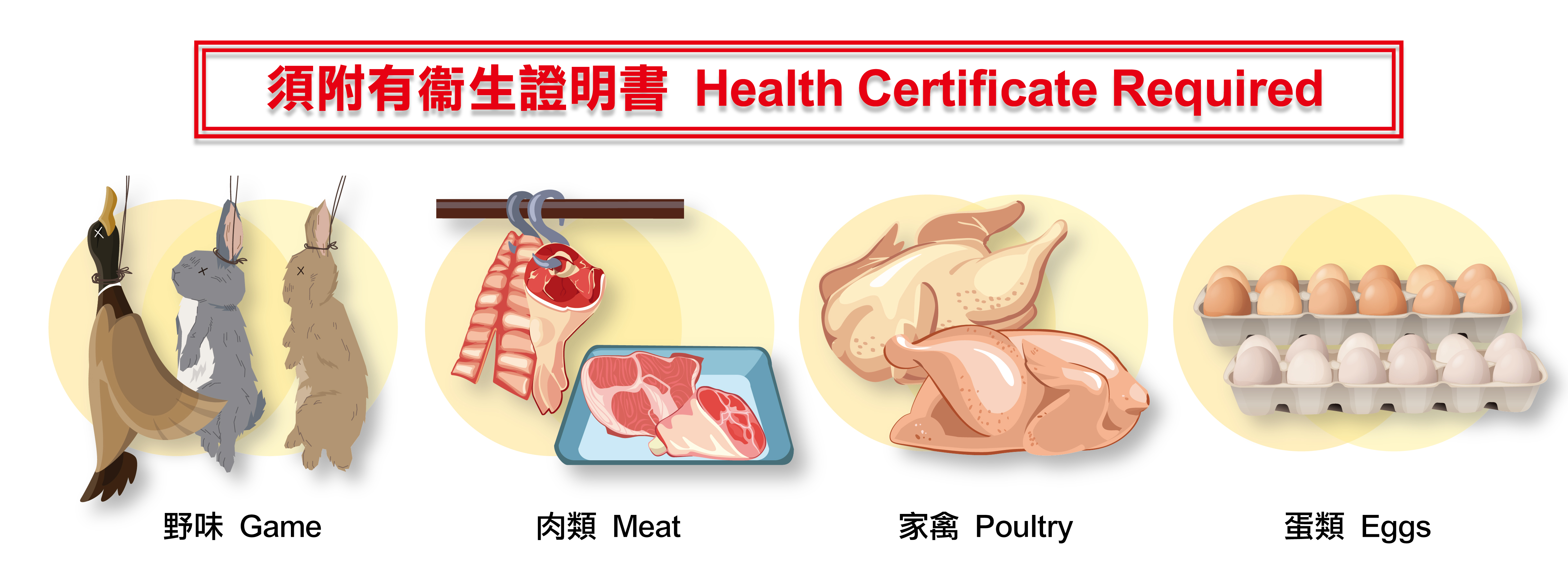
Food Safety Focus (216th Issue, July 2024) – Article 1
Cross Boundary Food Groceries - Be Legal and Safe
Reported by Mr. Kenneth YIP, Scientific Officer,
Risk Communication Section, Centre for Food Safety
Cross-boundary food groceries have grown in popularity since the full restoration of regular travel between Hong Kong and the Mainland. Some people may purchase fresh and ready-to-eat (RTE) food from the Mainland and bring them back through various Immigration Control Points. Consumers should exercise caution to secure food safety and follow relevant legislations. This article will highlight relevant local regulatory requirements of imported food, discuss the food safety concerns of cross boundary food grocery and explain some general food safety principles from purchase to storage.
Be Vigilant of the Regulatory Requirements when Importing Food
Food items like game, meat, poultry and eggs are common choices among consumers, yet they are regarded as regulated food in Hong Kong. According to the Imported Game, Meat, Poultry and Eggs Regulations (Cap. 132AK), each consignment of regulated food, whether for personal use or not, has to be accompanied by a health certificate issued by the issuing entity of the place of origin or written permission from the Food and Environmental Hygiene Department (FEHD) (Figure). Offenders are liable on conviction to a maximum fine of $50,000 and six months' imprisonment under Cap. 132AK.
 Figure : Valid health certificates are required when importing regulated food
Figure : Valid health certificates are required when importing regulated food
As stipulated in the Frozen Confections Regulation (Cap. 132AC) and the Milk Regulation (Cap. 132AQ), approval from the FEHD is required when importing frozen confections, milk or milk beverage into Hong Kong from a source of manufacture for sale. Besides, marine product importers should obtain health certificates issued by issuing entities of countries of origin to accompany their imports certifying that the food products concerned are fit for human consumption.
Of note, merely changing food packaging designs and materials like packing raw meat in foil or using vacuum packing for meat makes no difference on the enforcement of the regulations. Consumers are reminded to abide by the relevant Hong Kong laws when bringing food across the boundary. The CFS has stepped up interception and mounted enforcement actions, and deployed quarantine detector dogs to assist law enforcement at various land boundary control points.
What are the Food Safety Concerns of Cross Boundary Groceries?
Some customers would prefer to buy a variety of products at one go, including RTE food like siu-mei and raw food like fresh produce. Cross-contamination of RTE food with raw food may result from mixing the two types of food. Mixing raw and RTE food may cause cross-contamination of pathogens onto the RTE food.
In addition, the formats of food labels and nutrition labels of prepackaged food may be different from locally sold products. Some products may show manufacture dates rather than best before or use by dates required by the local labelling regulation. Besides, the nutrients shown on the nutrition labels might be different from the local requirements. Such deviations may result in misinterpretations.
Owing to the long distance between markets and home, it may take time to deliver the food back home after purchase. The food purchased may be kept in shopping bags for hours before sending for preparation or cold storage. Keeping food especially the RTE ones at improper holding temperature not only results in possible deterioration but also bacterial proliferation in the food purchased.
Tips to Secure Food Safety
It is best to prepare different shopping bags for raw and RTE food. Raw food should be separated in shopping bags to prevent the juices from contaminating other food items. The materials of the shopping bags should be water impermeable and preferably sealable to minimise contamination of the food by the surroundings.
When purchasing prepackaged food, the details of food labels should be studied. The dates printed on the packages may have different meanings in addition to expiry dates. Do not buy food beyond its expiry date. It is also wise to refer to the ingredient list and nutrition label to know the ingredients and allergens in the food for making informed choices.
Insulated bags and ice packs should be used for keeping hot and cold food respectively. For RTE food exposed within Temperature Danger Zone between 4°C and 60°C after purchase, follow the 2-hour / 4-hour rule. Upon arrival, store RTE, frozen and chilled foods in refrigerators promptly to maintain their quality.
Key Points to Note
- The import of regulated food including game, meat, poultry and eggs should be accompanied by a valid health certificate and/or written permission from the FEHD.
- Cross-contamination of RTE food by raw food, misinterpretations of food labels and nutrition labels as well as prolonged food storage at improper holding temperature are food safety concerns of cross boundary food grocery.
- Food safety risks can be minimised by keeping raw and RTE food separately, reading labels correctly and storing RTE food in insulated containers.
Advice to the Consumers
- Do not bring any game, meat, poultry and eggs into Hong Kong without health certificates.
- Store raw and RTE food in separately; follow the 2-hour / 4-hour rule for those RTE food items kept within Temperature Danger Zone.
- Read food labels and nutrition labels of prepackaged food carefully upon purchase.
Advice to the Trade
- Source imported food from reliable suppliers; regulated food should be supported by valid health certificates.

